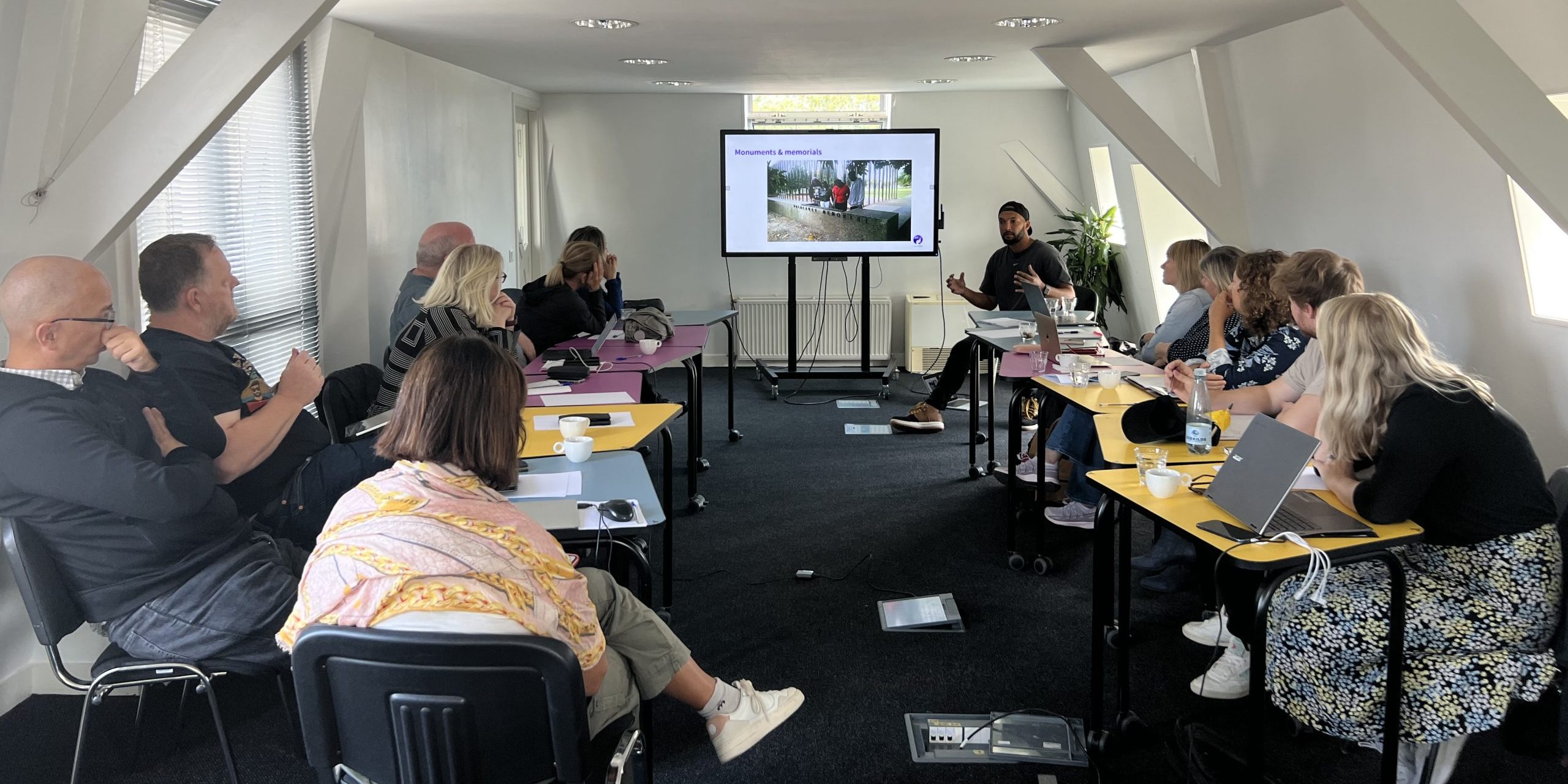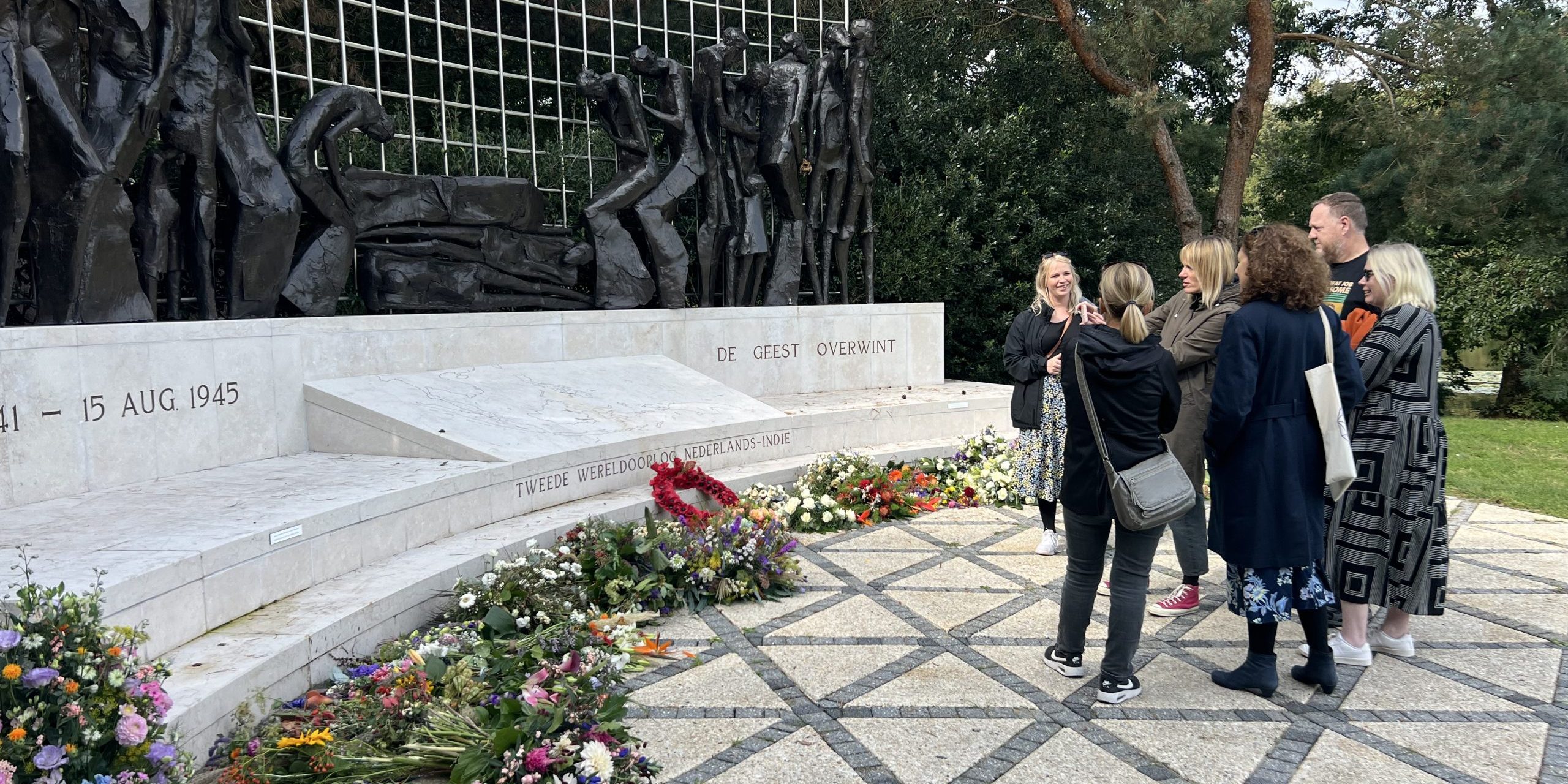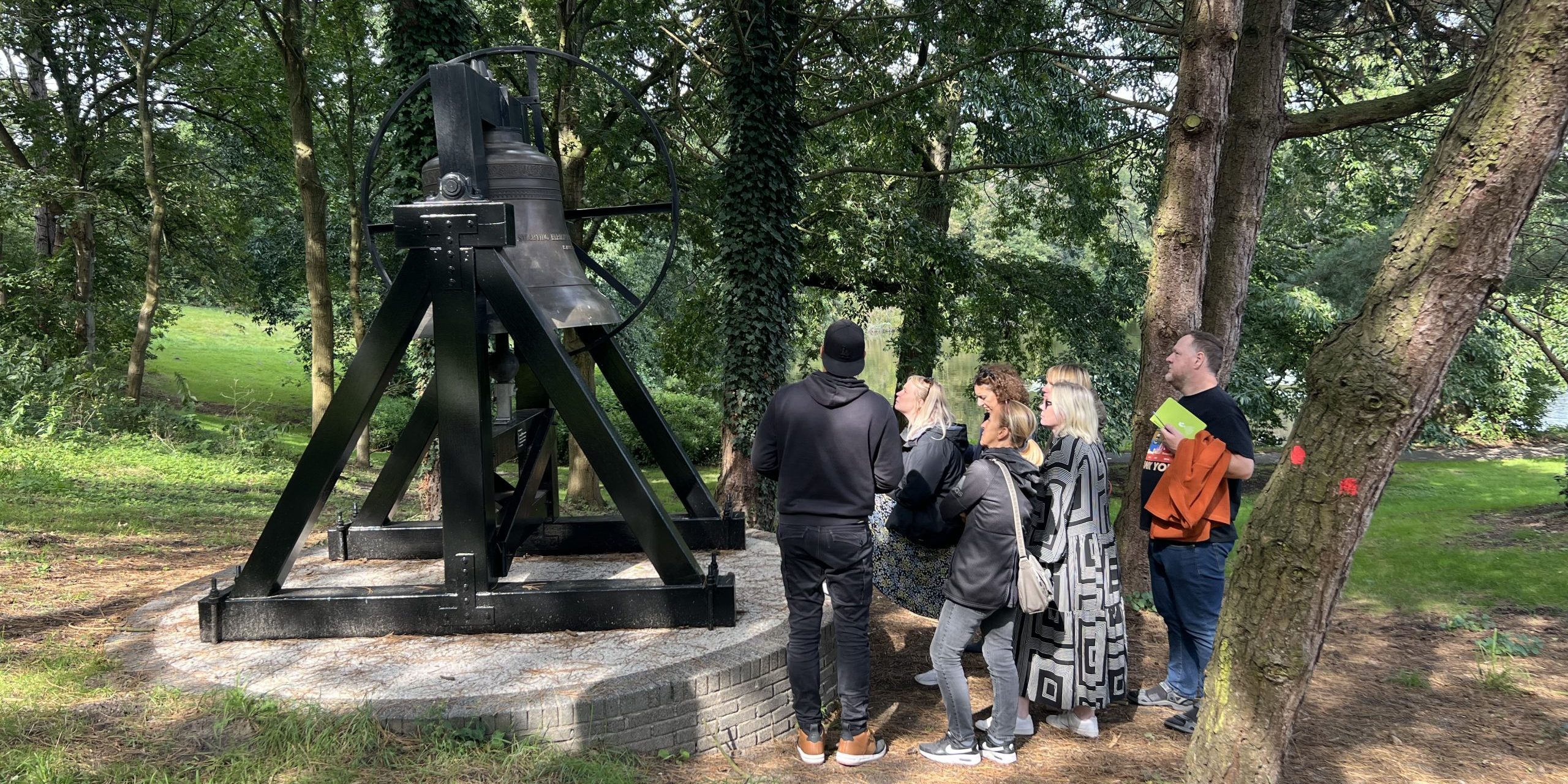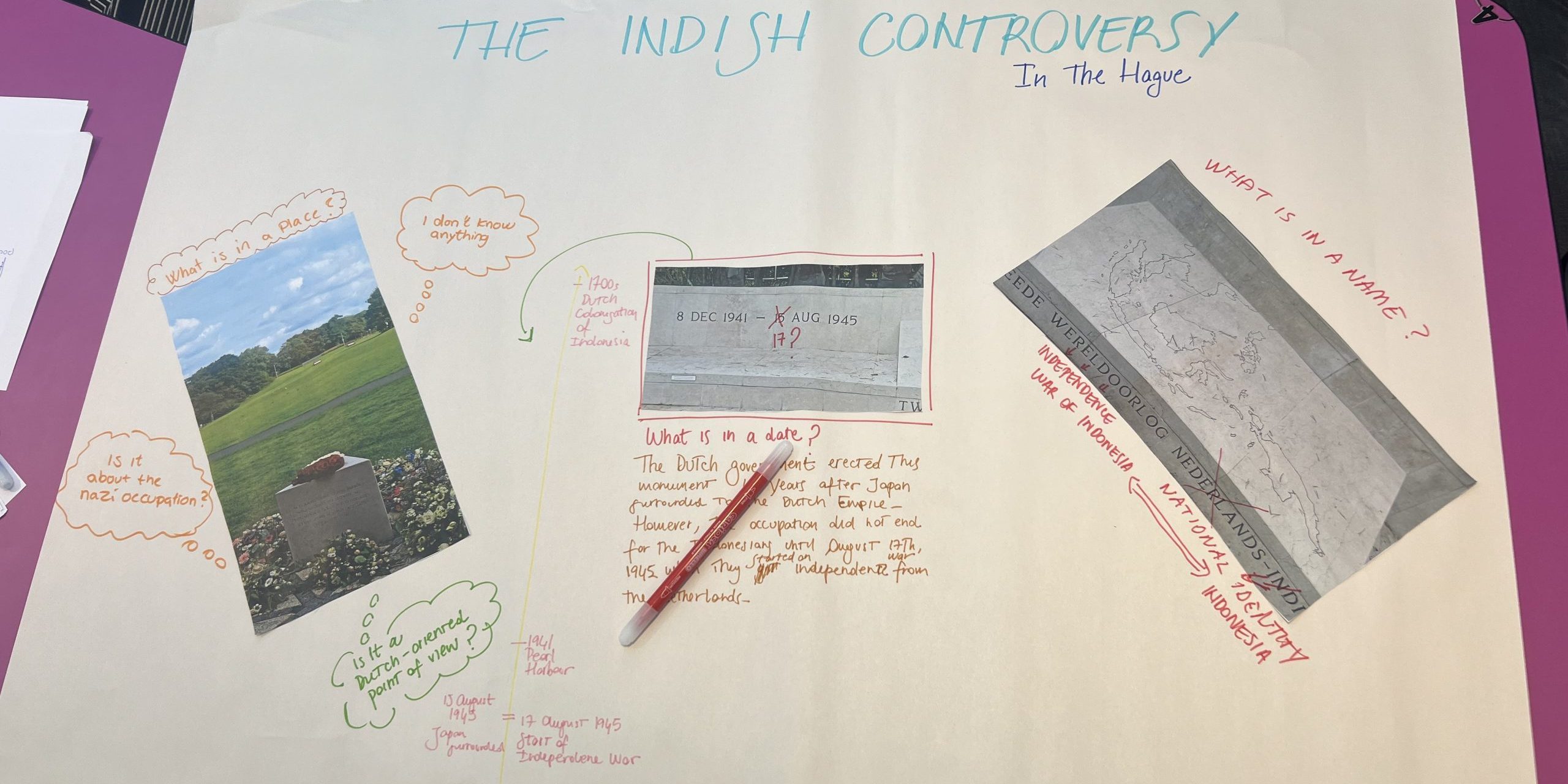In the context of the Monument(al) Challenges project, EuroClio coordinated a Train the Trainer event at the Secretariat in The Hague. This event organised around workshops on Place-Based Learning (PBL) and contested historical legacies aimed at forming teachers to become national trainers themselves. The Italian teachers team wrote a report on the few days they spent in The Hague with us.
We recently had the opportunity to participate in the MONCHAL – Monument(al) Challenge project “Train the Trainer” workshop from September 13th-15th 2024 at the Euroclio Secretariat in The Hague, Netherlands. As members of the Italian teachers’ team, we were excited to engage with educators from across Europe, all united by a shared goal: to address sensitive and complex histories in our classrooms with confidence and clarity.
The training was designed to introduce case studies from the MONCHAL educational kit and provide practical guidance on organising national workshops to disseminate the project’s findings. What we found particularly valuable was the place-based approach emphasised in the lesson plans. It’s one thing to discuss historical events in a detached manner, but to ground lessons in specific, often controversial, monuments and sites gave history a tangible and immediate relevance. It also made us reflect on how I’ve approached sensitive topics like colonialism and slavery in my own teaching and what new methods we could adopt to foster more open and critical discussions.
One aspect that stood out was how collaboratively this project was developed, with partners like HistorieLab and the American International School in Cyprus contributing to a wide range of educational resources. These tools—a toolkit of lesson plans, strategies, and source collections—felt well thought-out and aligned with current challenges educators face. It made us realise how essential collaboration and cross-border dialogue are in shaping modern history education, especially when dealing with histories that are shared but interpreted differently across nations.
What truly resonated with us was the training’s emphasis on preparing us to host national workshops back in our respective countries. The sense of responsibility we felt in this role grew throughout the workshop. We are eager to contribute to disseminating these resources, knowing that they can empower more educators to handle contested histories thoughtfully and professionally. It was inspiring to think about how the MONCHAL resources could impact not only our own teaching but the broader community of history educators in Italy.
The “Labelling Matters” symposium, which was woven into the training, offered another layer of insight. The symposium, held at the Wereldmuseum Leiden, brought together an impressive range of speakers, including museum professionals and academics. The interactive workshops were particularly eye-opening, especially those led by Robbert-Jan Adriaansen and Esther van Zutphen. Their discussions on labelling and historical narratives challenged us to rethink how we present history not just in textbooks but in everyday cultural spaces like museums. These are often the first points of contact the public has with history, and how we frame these narratives can profoundly influence societal understanding.
The symposium was a reminder of how important it is for educators to remain learners ourselves—engaging in conversations with experts from different fields and exploring how history is communicated outside the classroom. We left with a deeper appreciation of the complexities involved in telling contested histories and a clearer vision of how I might apply these insights in my own teaching. We are excited to integrate some of the ideas and tools into my classroom, not only to educate but to encourage students to think critically about the narratives they encounter.
Participating in the MONCHAL project and the “Train the Trainer” workshop was an enriching experience. It reinforced our commitment to making history education more nuanced, inclusive, and engaging. As we look ahead to organising workshops and sharing these resources with fellow educators, I feel more equipped to lead discussions that challenge historical narratives and encourage reflection—both for my students and myself.
Emma Abate and Stefania Gargioni
















